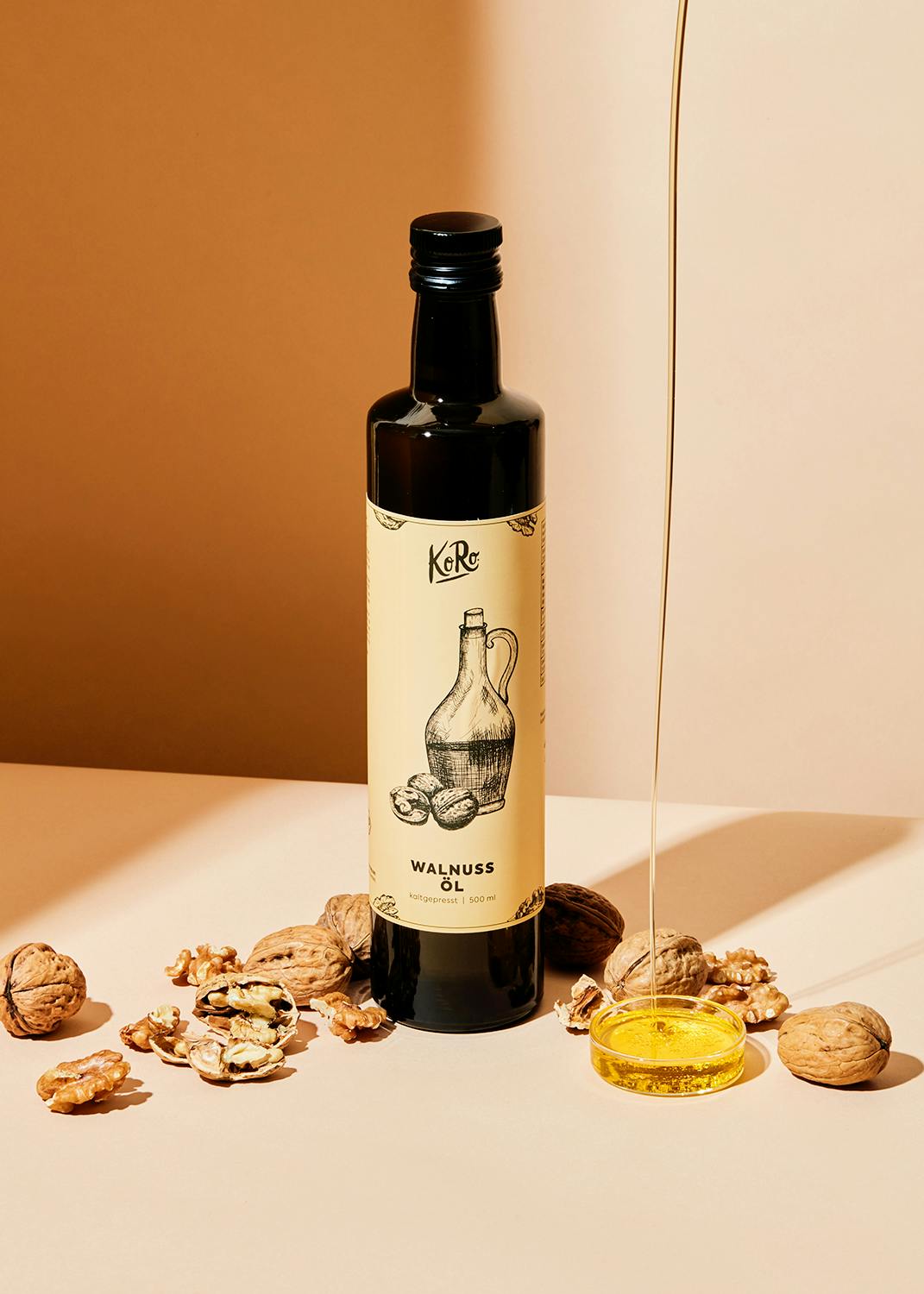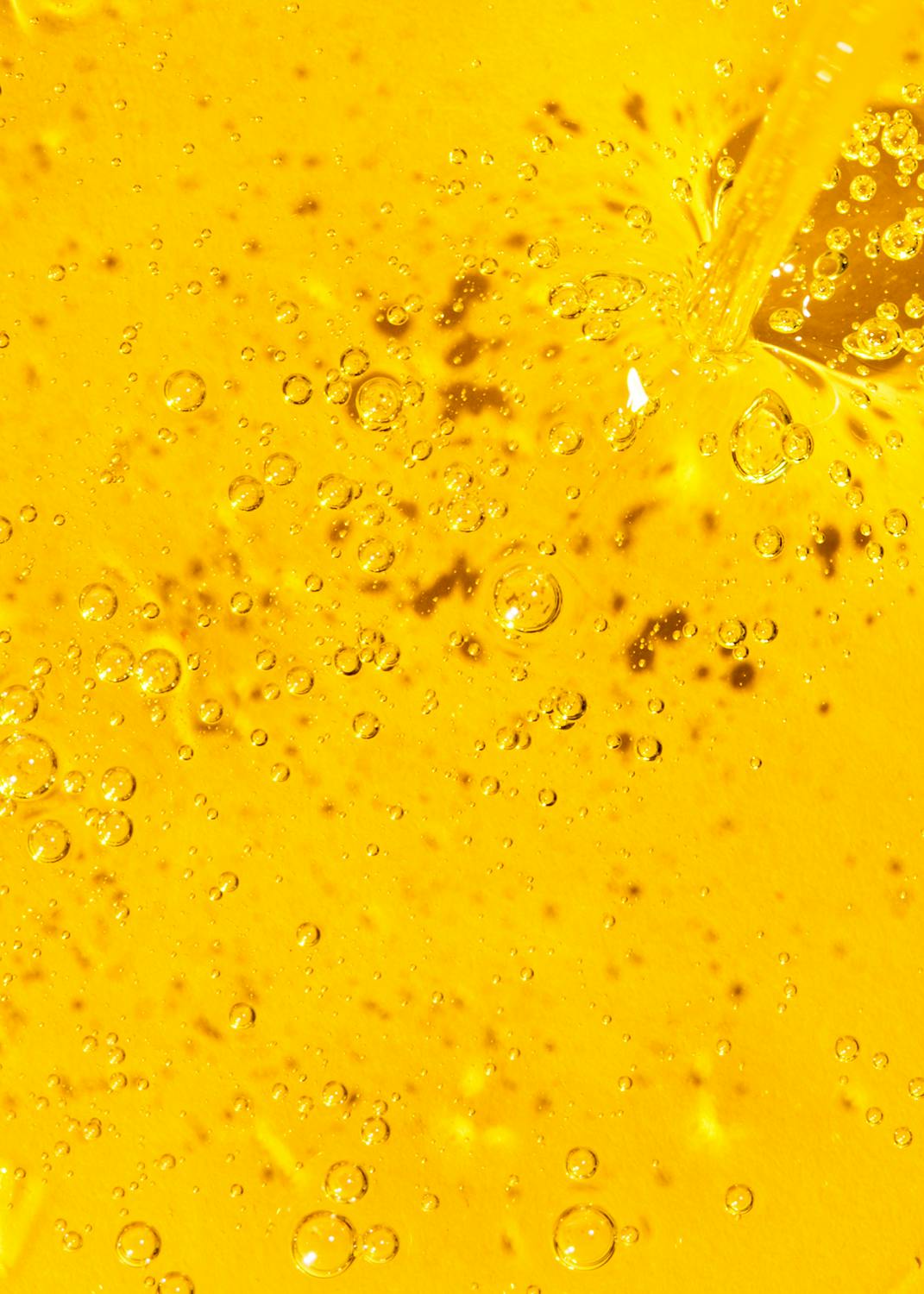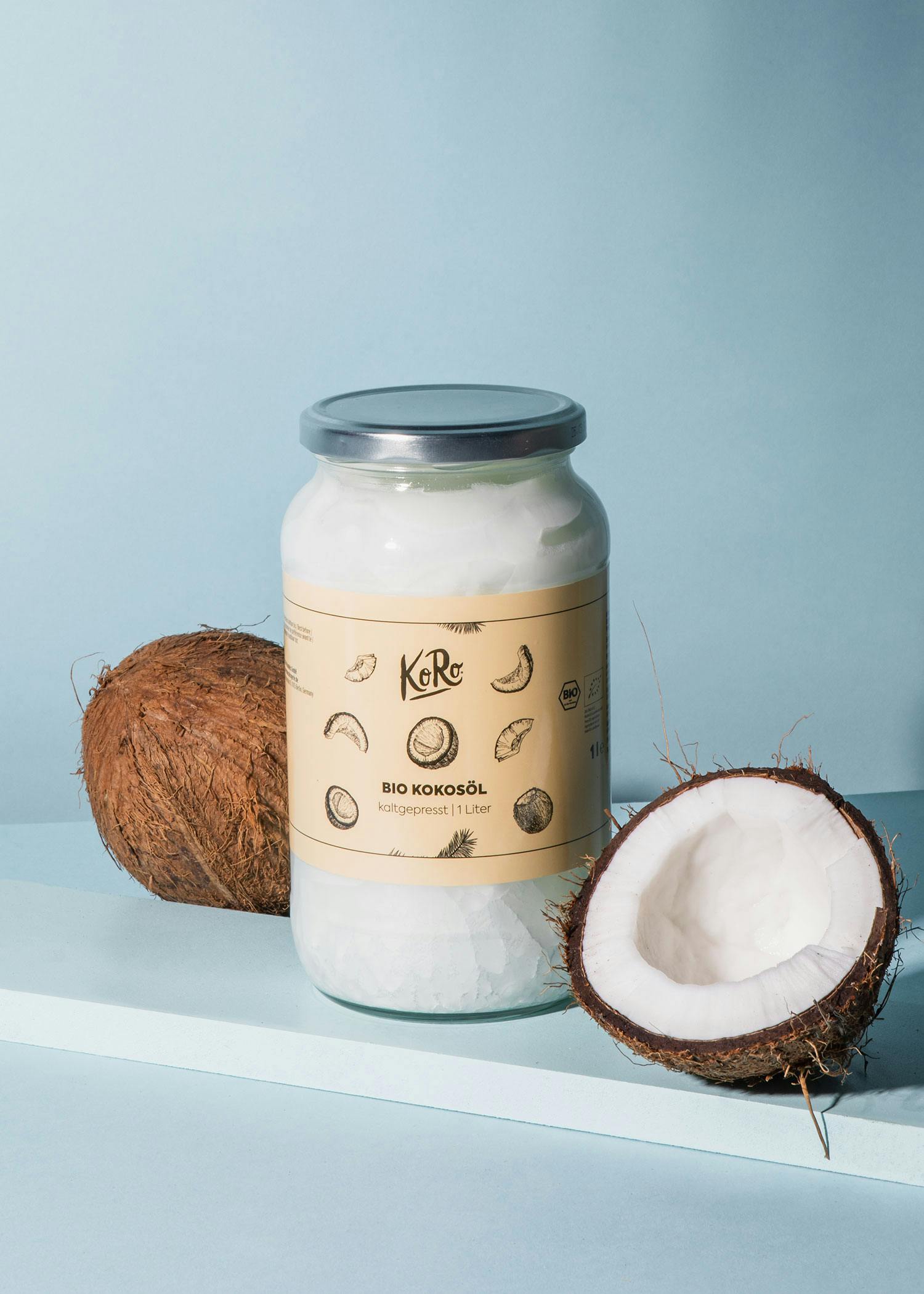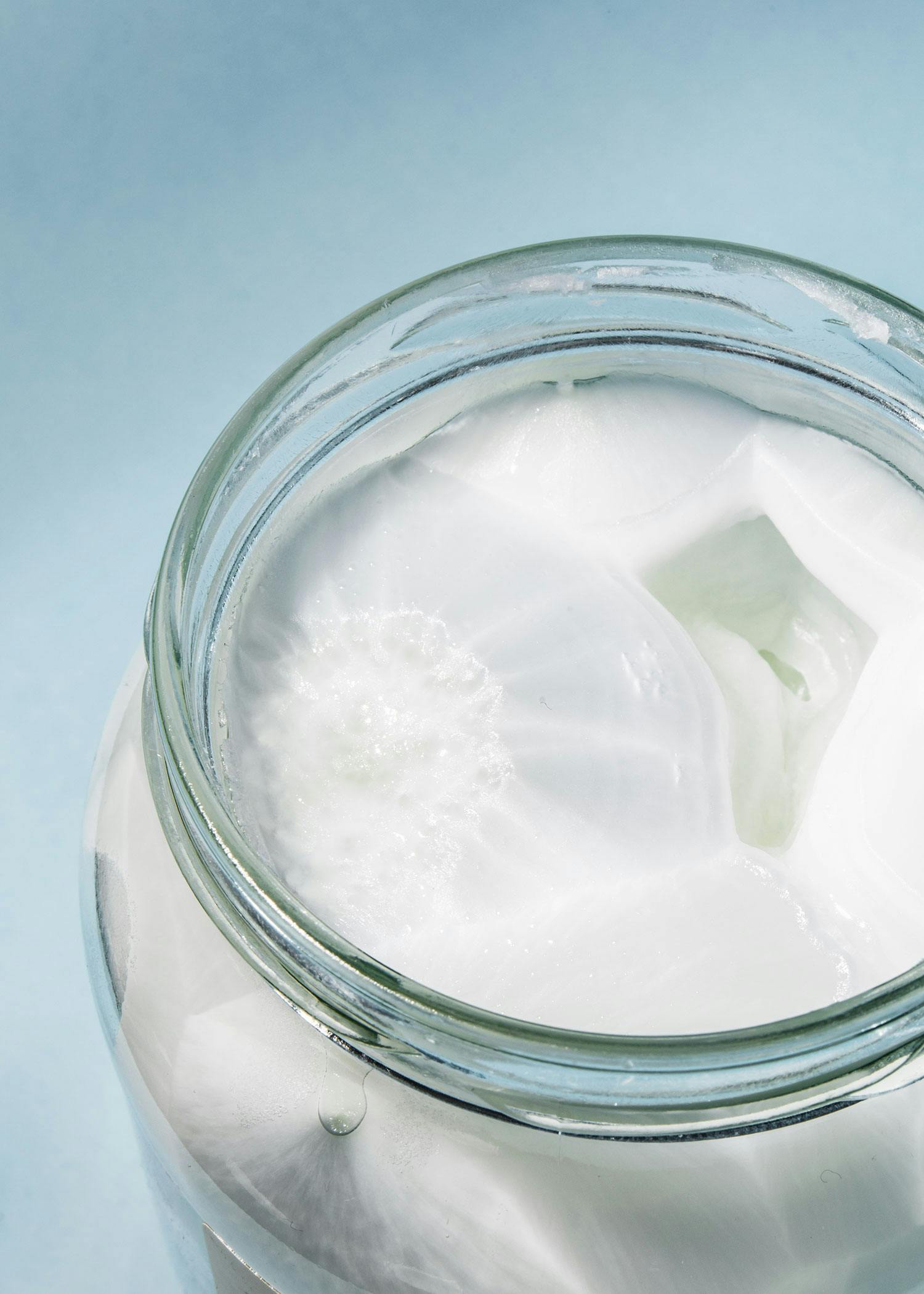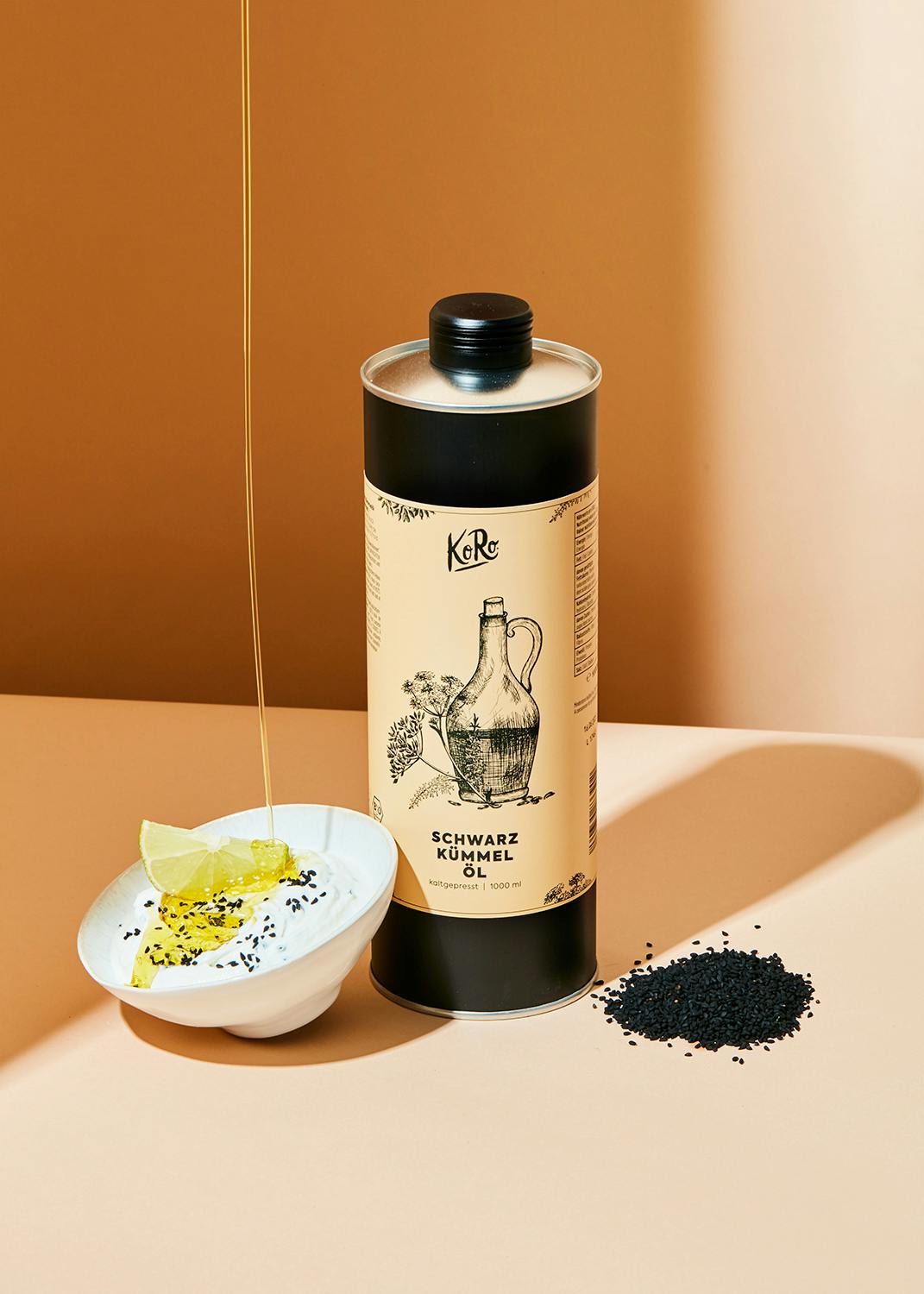Cold-pressed oils
It's easy with cold-pressed oils: as the name suggests, these oils are cold-pressed and you should therefore not heat them. The reason for this is that they have a low smoke point and can burn quickly. Cold-pressed oils are vegetable oils that are obtained by mechanically pressing nuts, seeds or fruit without using a high temperature. This process preserves more nutrients and flavors in the oils. They are therefore often rich in vitamins, minerals and secondary plant substances.
Cold-pressed oils are the ideal all-rounder for salads and antipasti, as they give your dishes that certain kick with their unique flavor. For a delicious vinaigrette, simply mix olive oil, walnut oil or hemp oil with vinegar and add mustard, garlic, herbs, salt and/or pepper to taste. Even if you should not necessarily use cold-pressed oils for sautéing, they can still be used in hot dishes. For example, you can use pumpkin seed oil to refine an autumnal pumpkin soup. You can top off savory dishes made from beans or chickpeas with our organic black cumin seed oil. Fun fact: Small bottles of black cumin oil have even been found in the tombs of pharaohs and are therefore considered the "gold of the pharaohs" - and they were known to only be buried with their most valuable possessions. Another oil that is at least as golden is our organic argan oil. It is also known as the "liquid gold of Morocco" and can be used to enhance couscous salad, lentil soup or hummus. But wait a minute: haven't you already read that on your tube of cream? Good combination, Watson! Because organic argan oil is popular with beauty gurus and gourmet chefs alike - understandably, we think!
Refined oils
For all hot dishes such as crispy chips or spring rolls, you can easily use refined oils. These are vegetable oils that are produced using chemical processes such as refining, degumming, bleaching and deodorizing to remove impurities and unwanted flavours or odours. They have a longer shelf life and higher smoke points than cold-pressed oils, making them more suitable for frying and cooking at high temperatures.
The all-rounder for frying and baking from the KoRo cosmos: our organic frying and baking oil! This consists of 100 % sunflower oil and is therefore the refined counterpart to our virgin sunflower oil. The best thing about it is that it has a smoke point of around 250 °C, so you can fry onions and garlic until golden brown.
Coconut oil can also withstand temperatures of up to 200 °C and is therefore ideal for frying. A new trend: coconut oil in espresso or filter coffee. MCT oil, which consists only of the medium-chain fatty acids in coconut oil, is often used for this. However, this means that it has a lower smoke point and should really only be used to refine salads, smoothies or coffee - there's that! However, we love using coconut oil to create Asian dishes with lots of fresh vegetables and tofu! By the way: Our organic coconut oil gives your dishes a light coconut note, the deodorized coconut oil is completely tasteless. So feel free and decide what suits you better!
The special ones
You now know about cold-pressed and refined oils, but have you ever heard of ghee? Ghee - pronounced "gii" - is the clarified butter that remains after the lactose, protein and water have been separated from the butter. The good thing is that it has a higher smoke point than butter and is therefore ideal for frying, baking and deep-frying. And of course - just like butter - it makes a delicious spread. But that's not all: we also have organic ghee made from olive oil in our range! This consists mainly of virgin olive oil, which is combined with cocoa butter and soy lecithin (as an emulsifier). The result is a vegan butter alternative for bread that is even suitable for frying. The taste is of course slightly different to the original - instead of being delicately nutty, ghee made from olive oil tastes fruity and slightly bitter, but still incredibly delicious!
Nutritional knowledge to-go
The 1x1 of fatty acids
Saturated, unsaturated, omega-3 and omega-6 fatty acids - these are the terms that come to mind when we think of fats. But what do they actually mean? Saturated fatty acids are found in coconut oil, but also in animal lard. Unsaturated fatty acids are mainly found in vegetable oils such as olive oil, walnut oil or hemp oil. They have predominantly positive effects on the body and can, for example, lower cholesterol levels, regulate blood pressure or influence the immune system and inflammatory reactions. Unsaturated fatty acids also include omega-3 and omega-6 fatty acids, which the body cannot produce itself. So you have to get them from your diet.
Recommendations
This is usually not a problem with omega-6 fatty acids, but a sufficient intake of omega-3 fatty acids is more difficult. One thing is certain: rapeseed oil is the oil of choice! It has the lowest proportion of saturated fatty acids, a high proportion of monounsaturated fatty acids and you can even heat it carefully in the cold-pressed version - exceptions prove the rule. On top of this, rapeseed oil contains lots of omega-3 fatty acids, which walnut oil, hemp oil and linseed oil also have to offer. However, you should never heat the latter. Overall: it's the quantity that counts! So treat yourself to the delicious ghee flavor or the coconut touch of our organic coconut oil. The German Nutrition Society (DGE) recommends: 10-15 g of oil and 15-30 g of margarine, butter or ghee per day. One tablespoon corresponds to approximately 10 g.
Trans fatty acids
Another thing that often comes up when talking about fats: trans fatty acids! They are produced naturally by microorganisms in the rumen of ruminants or by food technology processes. For example, milk, butter, chips, potato chips, cookies and ready meals often contain large amounts of trans fatty acids. An excessive intake of trans fatty acids can increase the risk of lipometabolic disorders or coronary heart disease. Trans fatty acids may also be produced when oils are heated intensively and, above all, repeatedly. But: you now know which oils are best to use for frying - easy!
Summary
All oils have their place! Either because they provide valuable omega-3 fatty acids, have a high smoke point and are therefore well suited for frying or simply because they taste delicious. Variety is the way to go! Despite the colorful variety, the following applies to all oils: store in a cool, dry place away from light. So it's best to reserve a regular place for them right next to the other KoRo delicacies in your store cupboard!
